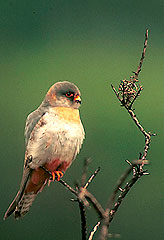Our local News round-up…
Our migration started early here with literally 000’s of Swift and hirundines making their way south, these have been joined by large numbers of Bee eater, White Stork and Black Kite. Not surprising given how wet it has been in northern Europe, but things here have also been bad with one of the driest springs and summers on record, currently we are melting under very hot temperatures and just about everything is struggling, including us! As we report, a few things have brightened our summer and also some sad news too, but hopefully you will be interested in our news round of local happenings and events….
No Tarifa Bird Fair this year!
WE CANNOT MAKE THIS YEAR’S BIRD FAIR
We decided not to make this edition of the International Fair for Birds of the Strait, Tarifa, September 2012.
It had depended economically on exhibitors, sponsors and the public. It also relied on partners and other companies to help us. We have not obtained the required response. Until the last moment we have been trying. We have spared no effort, but it is going to be impossible. We do not have enough resources and could not guarantee that we would be able to do it well. We have funds, but not enough. Our thanks to all who have helped us and we have tried valiantly.
To all who have contributed effort and funds we will directly write to thank you and explain in detail the facts. Keep trying. Again, thank you.
Note: It was depressing to realize the economical crisis here had reached the bi-annual bird fair in Tarifa. It is an event many looked forward to and though the news was not entirely unexpected, it is still a blow to enthusiasts. I wonder if the effect of controversial planning issues surrounding the current major of Tarifa had anything to do with the lack of support? Hopefully the event will happen in future years.
Weather takes its toll on breeding birds
A dry spring and lack of insects awaited our summer residents. It had an effect on numbers staying to breed and also on the successful raising of broods. The very wet conditions in northern Europe also had adverse effects for those birds normally spending their summers (not the most appropriate of descriptions) further north. A bad year all round for most of Europe’s breeding birds. Early autumn migration here certainly is testimony to the fact many birds have given up on breeding and are returning early to their wintering grounds. One or two brighter notes here was the very successful breeding of most of our raptors, Bonelli’s Eagle particularly enjoyed a good year with most nests under observation producing 2 young to fledging.
Iberia Bird Festival
Sadly the Tarifa Bird Fair is not happening this year but, for this year at least, Andalucia has the Iberia Bird Festival taking place 7th to 9th September. The festival is based in the Natural Park Cabo de Gata, Almería and looks like a superbly planned event lasting 3 days. Those wishing to attend and book accommodation at the venue of the festival, Hotel Rodalquilar, need to hurry as rooms are now in short supply. Full details of the festival and a host of activities can be found on their website Iberia Bird Festival. More news on this festival and the many of it’s exciting events will appear in a separate article soon!
Andalucia Bird Society
This progressive provincial bird society just keeps growing and no wonder with all that it offers to their members. On joining members get the official checklist for the birds here in Andalucia, a handy pocket sized list which also lists bird names in Spanish as well as English. Being a member entitles you to attend monthly field meetings, receive their quarterly magazine The Birds of Andalucia, receive monthly newsletters and generally benefit from an open forum on the web and contact with local birders here. More details here: Andalucia Bird Society. The new and first edition of their magazine was a great effort and congratulations to the society!
and finally...
Turkey Recce Tour
Turkey Recce Tour
HURRY ONLY 2 PLACES REMAINING on our recce tour to Turkey! Birdwatching in Turkey certainly represents something different for us and we always consider our Recce Tours as much an adventure as an investigation! Birding Turkey is a prospect that excites us, consider bird migration across the Bosporus, the most spectacular in Europe, watching seabirds from the close proximity of your hotel, then exploring the productive Taurus Mountains. We will not only offer a long stay in Istanbul, but venture south to the bird rich environs of the Sultan Marshes, the Goksu Delta and other great bird areas of Turkey, something for everyone and a true adventure. See our link for further details: Turkey

















